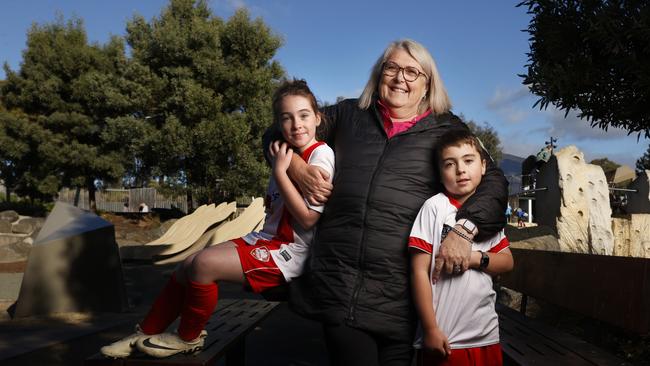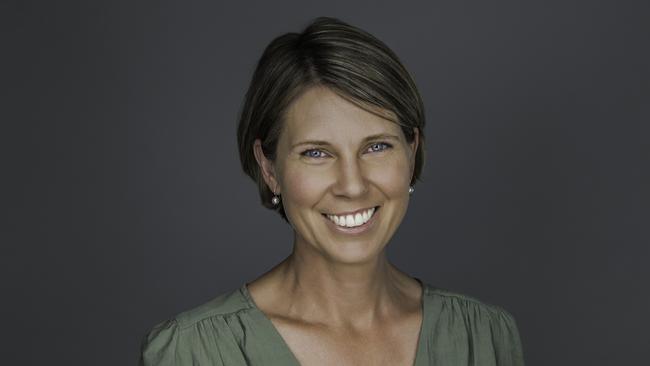Veteran nurse Cheryl Carr on why retiring after 44 years was ‘terrifying and confusing’
A veteran Aussie worker took a deep breath and decided to make one of the biggest decisions of her life.

Tasmania
Don't miss out on the headlines from Tasmania. Followed categories will be added to My News.
After 44 years working as a nurse in key clinical and administrative positions retiring was a “hard decision” for Cheryl Carr.
Awarded the nursing leader of the year in 2020, and highly respected and admired by colleagues, she and her husband Leon had been working with a financial planner to get a clear picture of what retirement would look like for them.
“Retiring is a hard decision … you are used to working hard and contributing to the workplace and when you have earned a regular wage for a very long time the thought of it not happening or how it actually worked with super was terrifying and confusing,” Ms Carr, 61, said.
“My contact was coming up for renewal, I had long service leave planned and as it turned out it wasn’t being renewed therefore I had to make the decision to look for another contract or retire.
“I took a deep breath and decided to retire at the end of my contract.”
When she had her four children there was no paid maternity leave and she worked part-time before doing post-graduate study and then working full-time in and running operating theatres at St. John’s, Calvary and the RHH.
Ms Carr had breast cancer in 2011 and during her sick leave took the lead on perioperative services at the RHH before being asked to join the RHH re-development team.
“I was successful in getting the deputy director role and lead our team to successfully deliver K Block at the very beginning of a pandemic,” she said.
Ms Carr is confident she’s made the right decision to retire.
“I plan to take up watercolour, spend time developing a garden, I’ve just been to Italy so tomatoes and basil will be planted.
“I’m fortunate that nursing has gifted me many friends and a number of close ones have retired too.
“We are planning to start a ‘Good housewives’ school’. It will primarily educate us on the best coffee and strolling spots in the greater Hobart area.”
She is looking forward to spending more time with her children and 14 grandchildren, including two great-grandchildren, “if they can fit us in” and not missing out on watching their concerts and sport because of work commitments.

“We have worked hard, paid off our home so we have a good nest egg and while I could have continued in work I am also cognisant of opportunities for our young bright up and comers,” Ms Carr said.
“As a nurse you see first-hand the many people that don’t have a long healthy retirement and I don’t want to be one of those.”
Tasmanians retire younger than any other state
Tasmanians are intending to retire at a younger age than in any other state with 120,000 workers likely to leave the workforce in the next 20 years.
Demographer Dr Lisa Denny said despite the increasing demand for workers, and a skills and labour shortage in the State, only workers in the ACT planned to retire at a younger age than Tasmanians.
“Given that around 42 per cent of employed Tasmanians are aged 45 or over and that for these workers’ their average intended retirement age is 64.7 years, around 120,000 Tasmanian workers will likely exit the workforce over the next 20 years,” she said.
“Not only will their exit from the workforce create further skill and labour shortages due to the demand for replacement labour, but it will add to the challenges to fill new job creation opportunities as well.”

Dr Denny said the ABS Survey of Retirement and Retirement Intentions 2022-23 showed the intended average age of retirement for Tasmanian workers aged 45 years or older was 64.7 years of age, compared with 65.4 years nationally.
She said that generally, “the younger a person is, the earlier they intend to retire” and that better understanding of the reasons for retirement would lead to better policy development to potentially retain workers.
“Importantly, however, to meet current and future workforce needs a much broader understanding of the motivations for working, not just retirement intentions, will be critical to maintaining both their participation and productivity in the labour force, and potentially prolonging their exit,” Dr Denny wrote in an analysis.
“For those aged 45 to 49 years, the average age for intended retirement is 63.1 years, however, for those aged 50 to 54 years, it is 62.8 years.
“For each subsequent cohort, the intended age of retirement increases.
“For those aged 60 to 64, intended retirement age is 66.1 years while for those aged 65 to 69 it is 68.4 years.”
The four main reasons influencing the retirement age of Tasmanians, Dr Denny said, included whether they were eligible for the age pension, access to superannuation, financial security and their health or physical abilities.
She said whether a person was in a relationship and had children, was a lone parent with or lived alone, influenced the intended their retirement age.
“Those Tasmanian men and women in a family partnership intend to retire at a younger age (64.5 years and 64.1 years respectively) than people who are lone parents (66.4 years) or live alone (66.4 years).
“The self-reported health status of Tasmanians suggests that for women, the healthier they are the longer they intend to work, whereas the opposite is true for men.
“The healthier they are, the earlier they intend to retire.
“Given these relatively unsurprising findings, much greater effort needs to be placed on understanding the intrinsic motivations for engaging in paid work and reducing burnout in the workplace in order to develop policies, strategies and actions to retain workers in the labour force, and not just those approaching retirement age while also better supporting those who have no choice but to work.”





